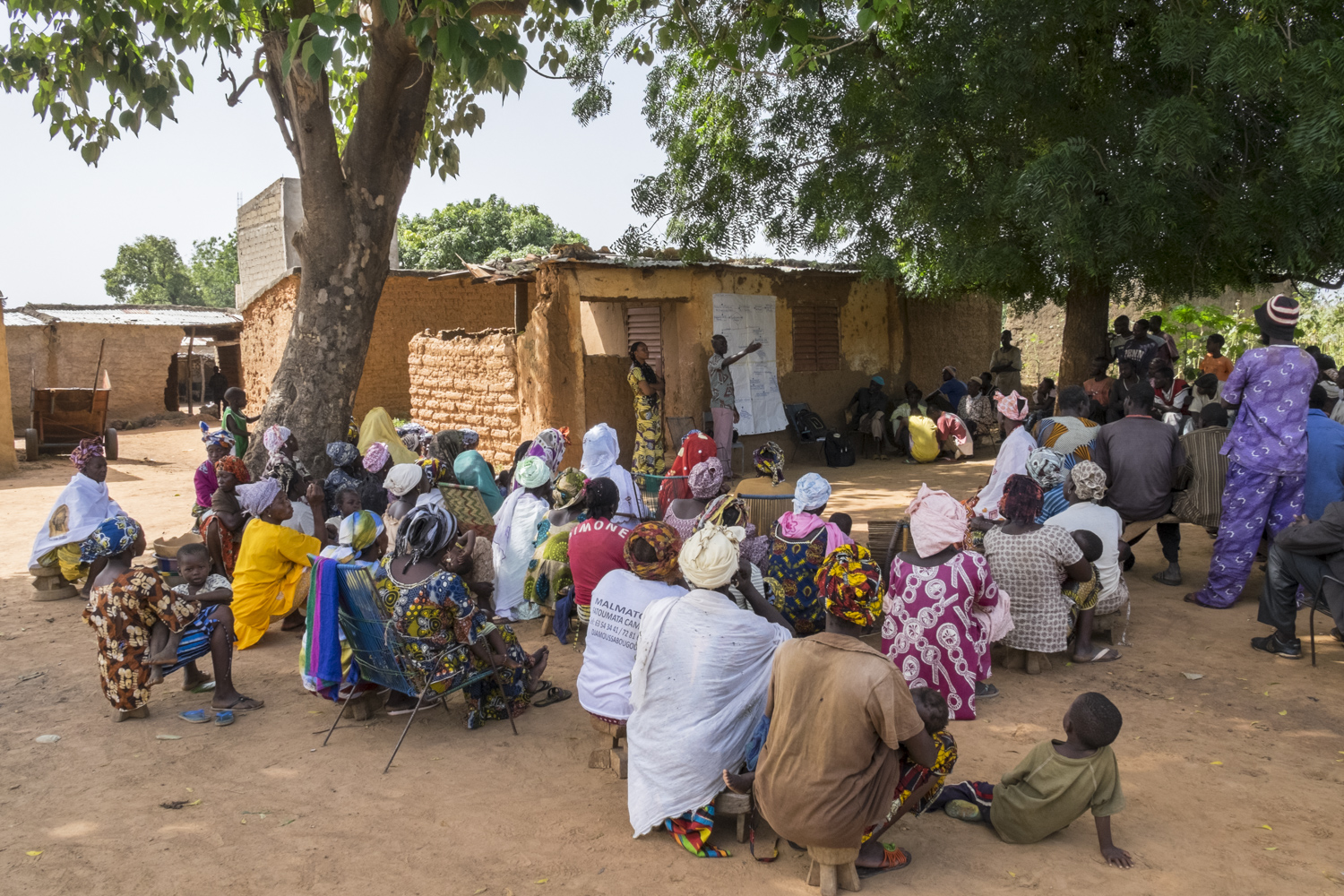This article was originally published on targetmalaria.org
By Bakara Dicko, Stakeholder Engagement Lead, African Centre for Excellence in Molecular Engineering
From 2012 to 2023, the Malaria Research and Training Center (MRTC), based out of the University of Sciences, Techniques and Technologies of Bamako (USTTB), was part of the Target Malaria research consortium working towards developing novel gene drive-based tools for controlling populations of malaria vector mosquitoes.
As part of this work, Target Malaria Mali undertook a range of engagement activities with the communities where research was conducted and with other stakeholders nationally. These activities were meant to ensure that the project’s activities took place with the agreement of the communities, and that communities were able to play a role in shaping the project’s approach to ensure that its eventual outcomes were in line with their needs and concerns.
A newly released paper aims to assess those 10 years of stakeholder engagement to identify good practices that can inform future engagement work on gene drive research in West Africa. It sets out a range of approaches and practices that enabled the Target Malaria Mali team to engage a variety of stakeholders, to share information, collect feedback, and determine community agreement, in a manner that was inclusive, effective, localized and culturally appropriate.
 Stakeholder engagement officers from Target Malaria Mali engaging local communities. Photograph: Target Malaria
Stakeholder engagement officers from Target Malaria Mali engaging local communities. Photograph: Target Malaria
In reflecting upon their experiences conducting stakeholder engagement activities for the project, Target Malaria Mali staff identified three core thematic areas in which key learnings had been noted that could be useful in informing their future efforts and that of those undertaking similar work in African contexts, notably in West Africa.
The first of these was lessons learned with regards to the communication of complex and novel scientific concepts; the second was lessons learned with regards to building partnerships with stakeholders, as an element of building a “co-development” approach; the third thematic area was lesson learned with regards to ending or transitioning project phases. Below is a summary of the lessons learned:
1 – Good practices and lessons learned with regards to communication of complex and novel scientific concepts
• Adopt a multiplicity of communication strategies to meet different audiences’ preferences and to adapt to socio-cultural context
• Use iterative processes to develop communication materials that are as effective and relevant as possible
• Leverage different types of knowledge and foster multi-disciplinary collaborations
2 – Good practices and lessons learned in developing partnerships with stakeholders
• Involve stakeholders from the very beginning of the project and at all phases of its work.
• Foster relationships with designated representatives of stakeholder groups who can provide key insights and local knowledge
• Make use of several different types of in-person consultation and provide a variety of channels for stakeholder feedback
• Provide opportunities for stakeholders to have direct and/or hands-on experience of project activities, equipment, and processes.
• Ensure that grievance management mechanisms are in place, are contextually appropriate, and are used by local stakeholders
3 – Good practices and lessons learned with regards to ending or transitioning project phases
• Develop an explicit, comprehensive, and timely strategy for each ending or transition phase of the project
• Develop jointly with stakeholders means of managing shared assets in a manner that is equitable and considered legitimate by local communities, and that does not preclude any future work with those communities
The experience of the Target Malaria Mali team reflects the fact that established best practices for stakeholder engagement are valid and continue to be relevant, even when working with a novel technology such as gene drive, while also pointing out some useful lessons learned about how specific challenges can be met.
In the paper, the team highlighted a series of lessons learned and good practices that others working in similar fields may find useful and which can contribute to the growing body of literature informing the conduct of responsible gene drive research.
For more in-depth explanations of each, you can access the full paper here.
Recent posts
